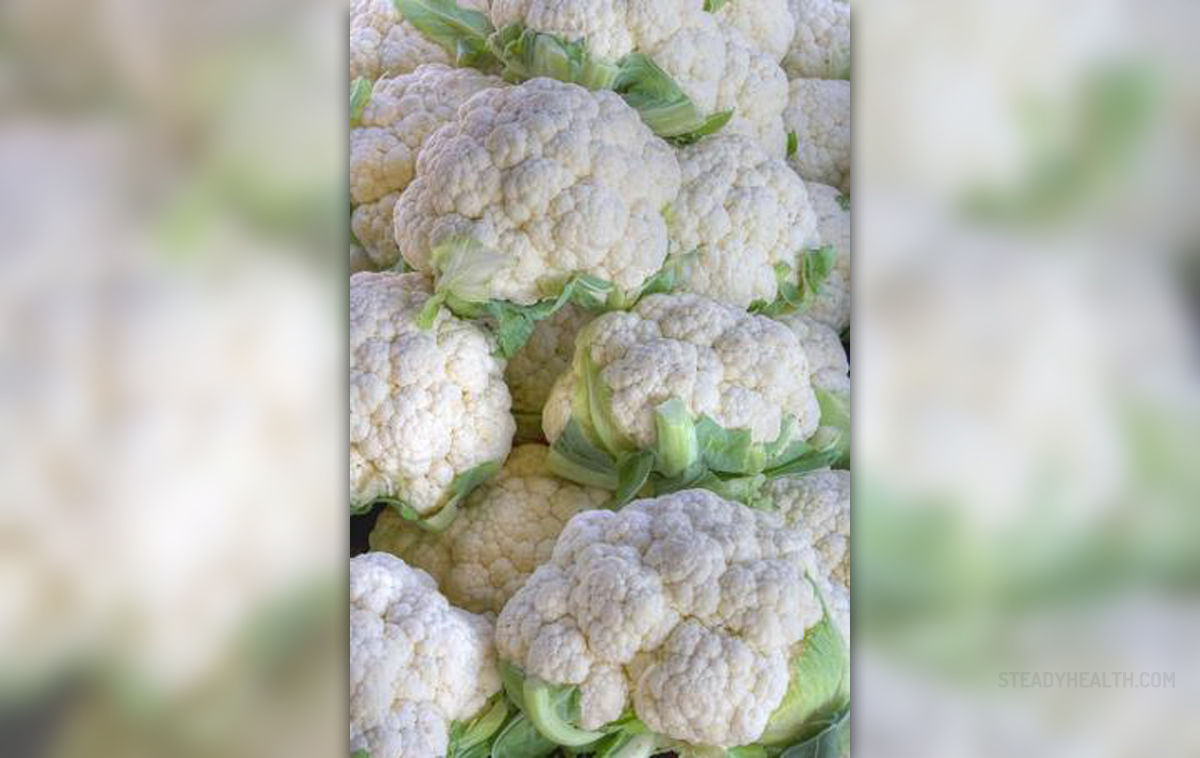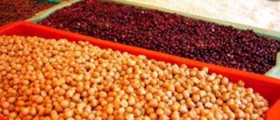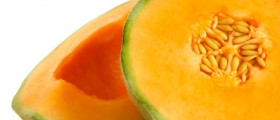
Cauliflower is a vegetable of the Brassiicaceae family. It is an annual plant that reproduces by seed. The name Cauliflower is derived from the Latin language, meaning "cabbage-flower". Typically, only the head of the plant is eaten and the stalk and leaves are thrown out. However, the green leaves are sometimes used in vegetable broth. Cauliflower, and similar cruciferous vegetables, such as:cabbage, cress, bok choy, broccoli and similar green leaf vegetables, should be used at least 4-5 times per week to get the maximum health benefits.
Health benefits of cauliflower
Various scientific studies have already linked cauliflower with cancer prevention. These studies suggest cauliflower is especially effective against bladder cancer, breast cancer, colon cancer, prostate cancer and ovarian cancer. Scientists believe that three essential properties of cauliflower are responsible for its protective benefits: detoxifying properties, antioxidant properties and anti-inflammatory properties.
Cauliflower is loaded with antioxidant and sulfur-containing nutrients, which can boost detoxification activities.
As an excellent source of vitamin C, and a very good source of manganese, cauliflower counts for an extremely potent antioxidant. Moreover, cauliflower contains key antioxidant phytonutrients such as beta-carotene, beta-cryptoxanthin, caffeic acid, cinnamic acid, ferulic acid, quercetin, rutin and kaempferol. Cauliflower thus protects the body from oxidative damage and lowers the cancer risk by helping to avoid chronic and unwanted oxidative stress.
High content of vitamin K and omega-3 fatty acids, makes cauliflower a strong anti-inflammatory food item. Chronic inflammation severely increases one's risk of cancers and other chronic diseases. Anti-inflammatory properties of cauliflower provide different cardiovascular benefits and may help to prevent and even possibly reverse blood vessel damage.
Cauliflower has 12% of dietary fiber per portion, which makes it very beneficial for digestive system. Moreover, sulforaphane, made from a glucosinolate in cauliflower, protects the lining of the stomach and prevents the overgrowth of Helicobacter pylori.Nutrition facts on cauliflower
100 grams of cooked, boiled and unsalted cauliflower contains approximately 23 calories, 2 grams of protein, 2 grams of dietary fiber, 15mg of sodium and a total of 4 grams of carbohydrates.
This food is low in saturated fat, and very low in cholesterol. It is also a good source of protein, thiamin, riboflavin, phosphorus and potassium, and a very good source of dietary fiber, vitamin C, vitamin K, vitamin B6, folate, pantothenic acid and manganese.
This portion is enough to satisfy as much as 74% of recommended daily allowance (RDA) for vitamin C, 17% of RDA for vitamin K, 11% of RDA for folate, and 9% of RDA for dietary fiber.

















Your thoughts on this
Loading...